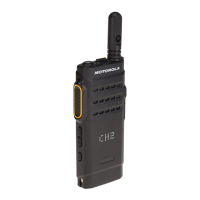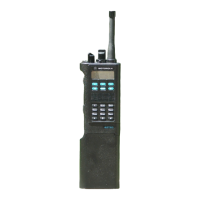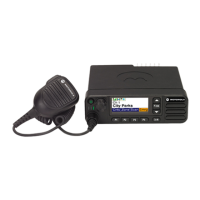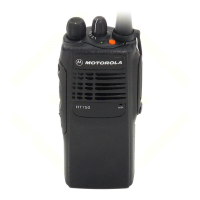Send firmware version and TEI
The radio sends back an SDS message with its firmware version and TEI.
NOTICE: If the sending Individual Short Subscriber Identity (ISSI) is not on the Allowed ISSIs
list, the receiving radio ignores the task.
2.19
Global Navigation Satellite System (GNSS) Location Service
The Global Navigation Satellite System (GNSS) Location Service feature uses information from
satellites orbiting the Earth to determine the geographical location of your radio. GNSS uses satellites
from the GPS, GLONASS, Galileo, and BeiDou systems. GNSS Location Service is a paid feature.
The GNSS Location Service availability, accuracy, and the position calculation time vary depending on
the environment in which you use the radio. The GNSS Location Service can assist your dispatcher or
colleagues in many ways such as more efficient deployment of resources or locating your radio when
you trigger your emergency service.
The radio supports the following system combinations depending on its hardware and configuration:
• Global Positioning System (GPS)
• Global Navigation Satellite System (GLONASS)
• BeiDou Navigation Satellite System (BDS)
• GPS + GLONASS
• GPS + BeiDou
The radio can send the location information over-the-air to your dispatcher to display it in the control
center. Check your radio configuration details with your service provider.
IMPORTANT:
Where the signals from satellites are not available, the GNSS Location Service
does not work. This situation usually happens when your radio cannot establish a view of a
wide area of open sky, for example, when your GNSS antenna is covered or facing the ground.
Such situations include being:
• In underground locations
• Inside buildings, trains, or other covered vehicles
• Under any other metal or concrete roof or structure
• Near a powerful radio or television tower
• In extreme temperature outside the operating limits of your radio
Even if your location information can be calculated in such situations, it may take longer to do so.
Therefore, in any emergency situation, always report your location to your dispatcher. Where adequate
signals from multiple satellites are available, your GNSS Location Service feature provides a location,
most probably near to your actual location.
The radio can be triggered to send Location Reports in various circumstances, for example:
• Upon a request.
• Entering Emergency Mode.
• At specified time intervals.
• At specified distance intervals.
The Location Reports can be sent in two ways using:
• Short Data Service (SDS).
• Packet Data - Trunked Mode Operation (TMO) only.
MN002955A01-AA
Chapter 2: Services and Features
52 Send Feedback
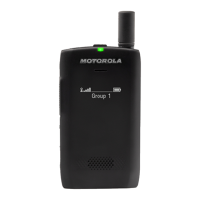
